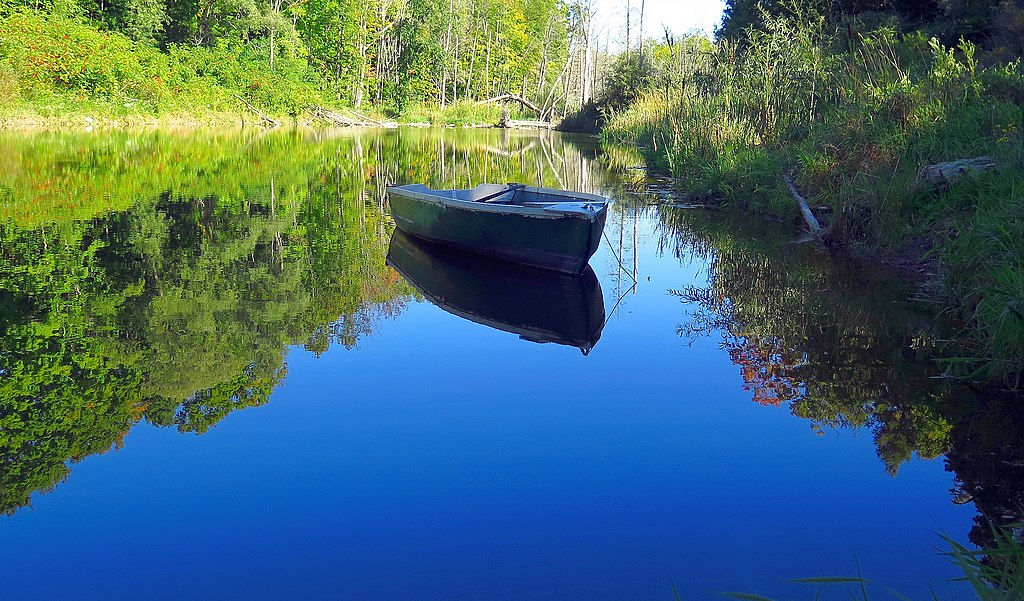On Tuesday, the Ontario legislature passed a budget bill that included a series of other measures, including a number that amend the legislation governing the province’s conservation authorities. The changes include requiring a conservation authority to grant permission for a development project if the minister of municipal affairs and housing issues a zoning order authorizing it. They also allow the minister, if issuing a permit would violate the conservation authorities’ mandate, to do so instead. The changes also mean that if the conservation authority takes more than 120 days to respond to an application, the applicant can go directly to a Local Planning Appeal Tribunal.
The changes essentially restrict conservation authorities’ powers to limit development that they deem environmentally sensitive.
You may unsubscribe from any of our newsletters at any time.
Half of the Greenbelt Council, which advises the minister of municipal affairs and housing on land use planning related to roughly 809,000 hectares of protected land in southern Ontario, recently resigned in protest of the changes.
Kim Gavine is the general manager of Conservation Ontario, which represents the 36 conservation authorities in the province. She spoke with Emma Prestwich about what is next for her organization.
Emma Prestwich: How are you feeling about the fact that the changes to the act passed?
Kim Gavine: I think it’s fair to say that our members are disappointed that we didn’t have an opportunity to have Schedule 6 (the section of the bill concerning conservation authorities) withdrawn, and to have more conversation and dialogue about some of the significant changes that have passed in Bill 229. Schedule 6 and the changes to the Conservation Authorities Act — there was a lot of criticism from many different sectors stating that it didn’t have the proper public scrutiny because it was underneath a budget bill.
[That said,] we will work with the province now in the development of the regulations, and it’s our hope is that we will have sufficient time to have fulsome discussion with the province about what will be included in the regulations and how we’re actually going to implement some of these changes on the ground.
EP: Some of the changes that your member organizations were most concerned about were the Minister’s Zoning Orders (MZOs) — and the fact that concerned parties can surpass conservation authorities in looking to get approval for a project. Are you hoping those could be tweaked or interpreted to not completely steamroll conservation authorities?
KG: I think one of the questions would be: under what circumstances would they use these powers? So they’ve got the ability to require the conservation authority to issue a permit when there’s an MZO, and there’s still in the changes the ability for the minister to issue a permit. And what criteria would be put in place to help them make their decisions?
One of the things that we had been saying all along was about the significant watershed science and data that the conservation authorities bring in making their decisions on permit applications — how will that watershed science and data be collected by the minister in making his or her decision? The other concern is that we ensure people and their properties are safe from flooding and other hazards to ensure that our drinking water is safe. If we’re no longer able to apply those criteria that we use in issuing a permit, our concern is, are we putting the environment at risk, people at risk?
More on Broadview:
- Sask. Green Party leader: province is ‘perfect place’ for clean energy shift
- Videos show stunning impact of thawing permafrost
- Willie Jennings on the intersection of climate and social justice
EP: There’s been a fair amount of advocacy effort and media attention to this issue. Do you have any thoughts as to why it went ahead with the proposed changes, given the opposition?
KG: I can’t say for certain why it went ahead, but the government has been very clear about wanting “more homes, more choices” and the need for economic stimulus opportunities. And something we’ve always been pretty consistent in saying is that conservation authorities are not against development. We just want to make sure that development happens in the right place.
We were overwhelmed with the amount of support and how vocal people were around this issue, coming from all different sectors, not only from the environmental groups but also from the agricultural sector, engineer associations….It was really broad and overwhelming, and so there’s no question that the environment is critical and important to the people of Ontario.
EP: The province also committed $30 million to create and restore wetlands in the province. What do you think about that announcement?
KG: We want to see more wetland protection and restoration across Ontario. Conservation authorities work very closely with organizations like Ducks Unlimited to get that work done, so any investment in protecting our environment, restoring our environment is welcome. It’s just unfortunate now that we’ve got legislation in place that still has the potential to have a negative impact on the environment.
EP: Why should people outside Ontario be concerned about this piece of provincial legislation?
KG: Ontario does have bragging rights in that we are the only province with conservation authorities [created through provincial legislation] and that watershed framework on which we are created, but there are other provinces that have conservation districts and also use a watershed basis to look at the management of their natural resources. But I think other parts of Canada have tried to emulate this long-standing model that has worked so well in Ontario and the fact that changes have been made to it, that we’re of the opinion will potentially have negative impacts to the environment, I think anyone who’s interested in clean air, safe drinking water and beautiful green spaces should be concerned about any changes that have the potential to jeopardize some of these key areas. Be they natural heritage features or water sources, they’re all critical. We saw just how important the environment was as a result of the pandemic. People have been flocking to conservation areas. People have had the need to be in green space for both mental and physical well-being.
EP: The province says it wanted to make the conservation authorities more efficient. You’ve said these changes won’t necessarily do that. Are you worried that they’ll actually make your job harder?
KG: Yeah. We’re concerned that our conservation authorities are going to be spending more time in the appeal process than actually issuing permits. That’s a big concern, and that was one of the reasons why we expressed that we were of the opinion that these changes were actually going to create more inefficiencies, more delays and more costs.
I guess time will tell if that’s the case, but we had heard the province and their concerns about efficiencies, accountability and consistency, and we were already working on a number of different initiatives through a process called our Client Service and Streamlining Initiative where we were trying to reduce the time that it would take to issue a permit, where we were looking at things like e-permitting solutions. We had been making really good progress on that, so we’re fearful now that the changes are actually going to take much longer and most likely create inefficiencies.
This interview has been condensed and edited.
***
Emma Prestwich is Broadview’s digital editor.
We hope you found this Broadview article engaging.
Our team is working hard to bring you more independent, award-winning journalism. But Broadview is a nonprofit and these are tough times for magazines. Please consider supporting our work. There are a number of ways to do so:
- Subscribe to our magazine and you’ll receive intelligent, timely stories and perspectives delivered to your home 10 times a year.
- Donate to our Friends Fund.
- Give the gift of Broadview to someone special in your life and make a difference!
Thank you for being such wonderful readers.
Jocelyn Bell
Editor/Publisher















CONGRATULATIONS to Emma Prestwich on her interview with Kim Gavine. You designed really smart questions based on a good understanding of the concerns.
As a member of GASP (Grandm(other)s Act to Save the Planet), I participated in our group letter writing campaign to our MPPs to remove Schedule 9 from Bill 229. I had little background to bring to the conservation problem. It took me three hours to do the research before I could write an intelligent letter. I appreciate your coverage. In fact I was unaware that the government had actually passed the bill which is quite astounding given the mobilization of eco-forces against it.